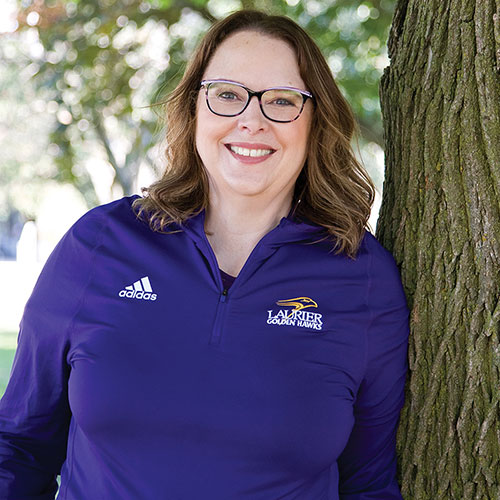
“Technology and its effective application are essential to building a future-ready community at Laurier. ICT is vital to ensuring Laurier thrives through teaching, learning, research, and community engagement.”
Deborah MacLatchy, President and Vice-Chancellor

The desire for dependable and readily available high-speed access continues to grow across Laurier’s campuses. We are actively working to enhance our network and communication infrastructure to meet the rising demand and local integration needs while also investing in new and improved ways to communicate to our community.
Wi-Fi upgrades have been implemented across the Waterloo and Brantford campuses, with over 1,100 new wireless access points installed. Throughout summer 2023, most student residences on the Waterloo campus were upgraded, with the remaining residences scheduled for 2024. We have also upgraded key communal spaces, such as the Concourse on the Waterloo campus.
With the shift towards a hybrid work environment, Microsoft Teams Phone, a modern phone solution, has successfully been rolled out to over 1,900 staff and faculty. Teams Phone is a cloud-based telephony system which allows you to make and receive internal and external calls using an internet connection via Microsoft Teams instead of a traditional phone line.
Significant web conferencing upgrades have been made to over 60 classrooms and 14 meeting rooms at the Waterloo and Brantford campuses. Whether it’s the music rehearsal space in the Faculty of Music (A318) in Waterloo or The Circle Room used for Indigenous learning and engagement in Brantford (RCE319), the new, modern, state of the art AV equipment installed in these spaces will significantly improve the hybrid experience for everyone, whether engaging in-person or online.
We have revitalized digital signage on the Brantford, Kitchener, and Waterloo campuses, installing new displays and refreshing existing ones. This expanded fleet of digital signage presents exciting possibilities for students, faculty, and staff to promote university events and initiatives. It also offers a unique advertising avenue for on and off-campus businesses , which in turn can generate revenue for the university.
Since January 2023, more than 230 laptop loans have been fulfilled. Laptops are loaned out to students, free of charge, for up to 4 weeks per semester. This program is vital for students who do not have a functioning laptop, are not financially able to buy one, are waiting for their OSAP funding, or have a Chromebook and cannot run required software due to incompatibility.
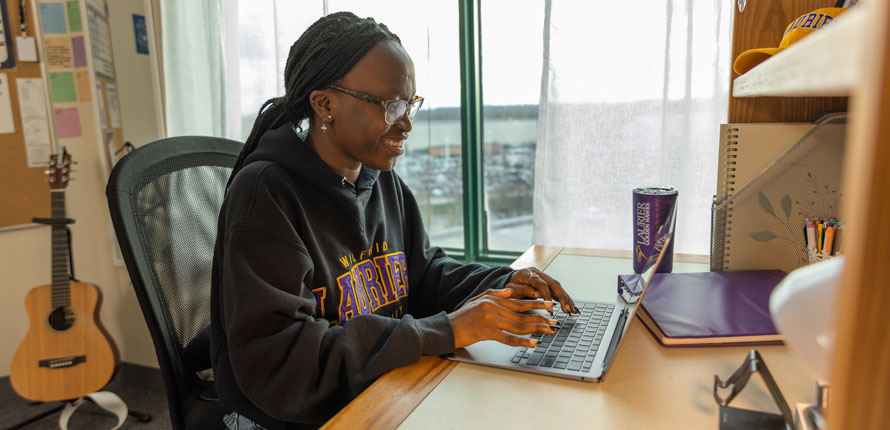
As the IT landscape continually evolves, the higher education sector has become a significant target for cyber-attacks and malicious activity. Mitigating the risks posed by cyber threats and strengthening our data security are top priorities of our institution.
To help improve security on the Laurier-owned and personal devices of faculty and staff, we have enabled Microsoft Intune as a mobile application management tool. This tool allows individuals to securely access Laurier data through Microsoft 365 applications (e.g., Outlook, Teams, OneDrive) on their devices. Intune effectively safeguards organizational data with minimal disruption to end users. In the case that a device gets misplaced, access to the work apps on the device can easily be disabled without accessing or modifying any non-work-related apps.
Multi-factor authentication (MFA) is enabled on all Laurier faculty, staff, student, and alumni accounts. MFA adds an additional layer of protection to the traditional login process and helps protect accounts from unauthorized access. The project began in 2019 and completed in 2023, with MFA being rolled out to all user groups across the institution.
MFA enrolment numbers:
ICT introduced cyber security training for faculty and staff to keep our community informed about best practices, the current threat landscape, and how to keep accounts and data safe. The training course has five modules with information about topics such as malware, identifying phishing, and how to keep your account secure. The cyber security training is recognized in the revised Policy 9.1 Use of Information Technology, which was updated in 2023 to reflect modern operations.
A collaborative effort involving ICT, Privacy and Legal Services, Laurier users, and external vendors, the PSIA process reviews the Laurier user’s technology needs and assesses a vendor’s established security infrastructure, prior to the adoption of any new software solution. In 2023, 54 new solutions were reviewed and approved, including:

"Laurier's ICT team has made notable strides in improving our digital ecosystem by introducing a number of key initiatives that have modernized our technological landscape."
Heidi Northwood, Provost and Vice-President: Academic
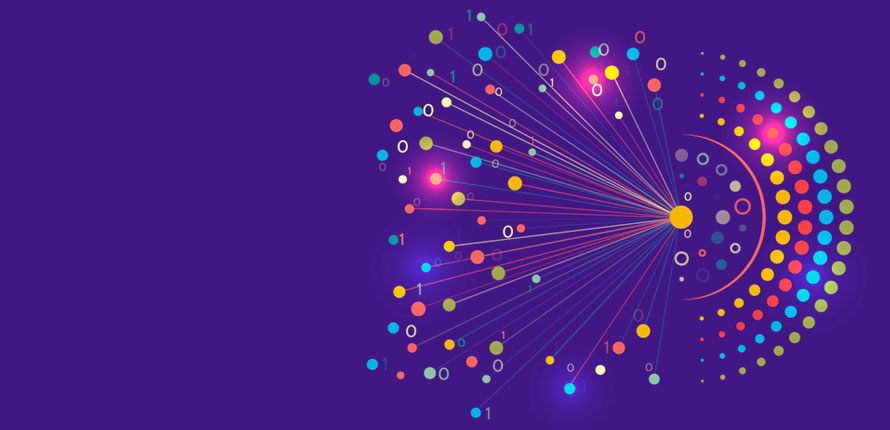
In 2023 ICT supported many operational enhancements, contributing to digital transformation initiatives across our institution.
In 2023, The Hawk Shop (formerly the Laurier bookstore) switched to a new enterprise resource planning (ERP) system, NetSuite – a cloud-based, centralized database which allows for cost savings, workflow visibility, data security, and more. For The Hawk Shop’s customers, the enhancements made by this robust platform will result in a more seamless and user-friendly experience for both in-person and online shoppers.
License Plate Recognition (LPR) technology has been rolled out at the Waterloo and Kitchener campuses to enhance Laurier’s Parking Services. LPR streamlines processes by using cameras to validate parking by comparing license plates on parked cars to license plates registered on a list of valid permits.
For those parking on campus, multiple vehicles can be registered to your permit, with one vehicle being permitted to park on campus at a time. LPR ensures that your registered vehicle is easily and accurately identified.
In alignment with Laurier's Digital Strategy, Banner Document Management (BDM) has been utilized to improve HR business processes. This document management tool automates workflows and provides a central repository for staff records, which were previously a combination of digital and non-digital records. BDM provides streamlined workflows, improved business processes, robust digital document management additional data security enhancements for staff records, and supports compliance with regulatory policies for retention and internal audits.
As part of Laurier’s continued sustainability efforts, non-Ricoh branded printers (e.g., HP) have been phased out in favor of eco-friendlier Ricoh printers. This shift will help reduce our ecological footprint and limit printing-related costs for energy, paper, and ink.
In 2023, over 90% of non-Ricoh printers on the Waterloo campus and over 85% on the Brantford campus were collected for recycling, reuse, and e-waste.
In collaboration with the Office of Research, ICT developed the Researcher Handbook, a resource created and owned by the Office of Research which provides researchers with the tools and resources they need to develop their research programs. This repository of research tools and resources will help researchers navigate the vast amount of information available.

Communications Management has been fully operationalized, providing a built-in method for automated email communications to students. Previously, Enrolment Services relied on MailChimp-based email communications which was costly and time consuming. Service Laurier and Student Finance have been able to significantly reduce individual calls and communications by using automated emails based on student financial status.
In collaboration with Microsoft, ICT was able to move its data warehouse infrastructure from on-premises legacy hardware to a cutting-edge cloud solution. In partnership with Institutional Research, ICT intends to expand the data warehouse services to include what is called a ‘data lake,’ which will provide a powerful, organized, and flexible library of Laurier data, making it easier to explore, analyze, and gain valuable insights.

“The importance of ICT project funding cannot be overstated in an environment where there is an expectation that technology will enhance the way we learn, teach, research and work at Laurier.”
Lloyd Noronha, Vice-President: Finance and Administration
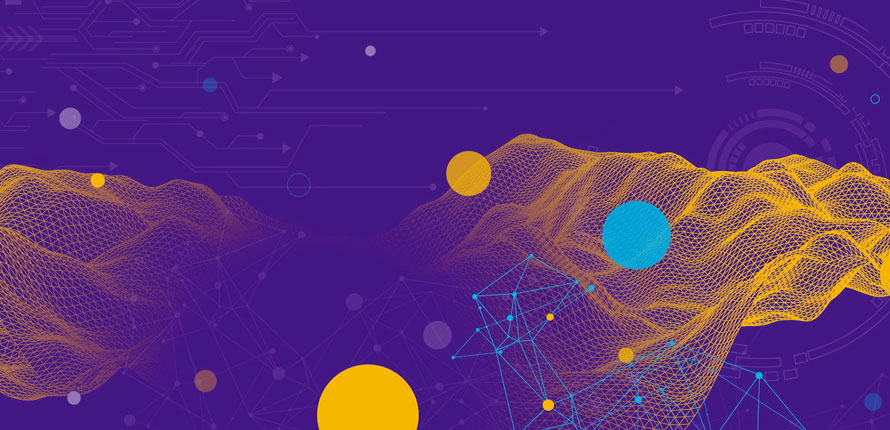
To increase transparency and build proactive communication channels, ICT revisited our governance structure and published the Laurier Digital Strategy in 2023.
A revised and more transparent governance model for digital technology provides an opportunity for members of our Laurier community to actively and regularly participate in defining priorities, contribute to annual budget requests, and help shape the future of our multi-campus technology.
As part of this improved governance restructure, we have launched a revised project prioritization matrix, which scores projects on how they will support institutional strategies, generate revenue, and mitigate risk. Investments in technology have become part of the capital budgeting process. This signals a shift in priorities, recognizes the importance of funding for digital projects, and allows us to approach digital investments holistically rather than as requests from individual departments.
In a rapidly evolving digital landscape, a well-defined digital strategy fosters innovation, boosts competitiveness, and expands reach through online programs and services. It also enables data-driven decision-making, cost optimization, and improved administrative efficiency.
After developing the Laurier Digital Strategy in 2022, in 2023 we prioritized outlining priority projects on our roadmap and key performance indicators (KPIs) that we will use to measure the success of our strategy. These KPIs are being benchmarked in 2023 and will be published in early 2024.
ICT is implementing a new hardware and software strategy and architecture that aims to expand access for faculty and students beyond the campus, improve ICT management, and reduce operational costs. Currently this new strategy is being piloted with plans to roll it out to additional labs in 2024 and beyond.
In 2024, we will be continuing the upgrading of our network and Wi-Fi capabilities across our campuses. Specifically, we will be targeting Music, Bricker Academic, Science, Science Research and Conrad Residence for upgrades. There are also plans to upgrade the networks in Brantford at 97 Dalhousie, 111 Darling, 45 Market Place, Odeon, and the Market Darling Centre.
Laurier is procuring a new, more user friendly and effective emergency alert solution. We look forward to sharing more information about this initiative once it is further developed.
In Spring 2024, ICT and Teaching and Learning will be streamlining the ways we communicate to students at Laurier. In the past, students were provided with two email addresses: a primary (@mylaurier.ca) email and a MyLearningSpace (@myls.wlu.ca) email. We will be updating the MyLearningSpace email client to use students’ primary email address, @mylaurier.ca, and decommissioning the @myls.wlu.ca account.

"Whether using Microsoft 365 for coursework, MyLearningSpace for collaborative engagement, or connecting to the improving Wi-Fi network on campus, students appreciate the work of Laurier’s ICT department."
Megan Spenler (she/her), President and CEO, Wilfrid Laurier University Students’ Union
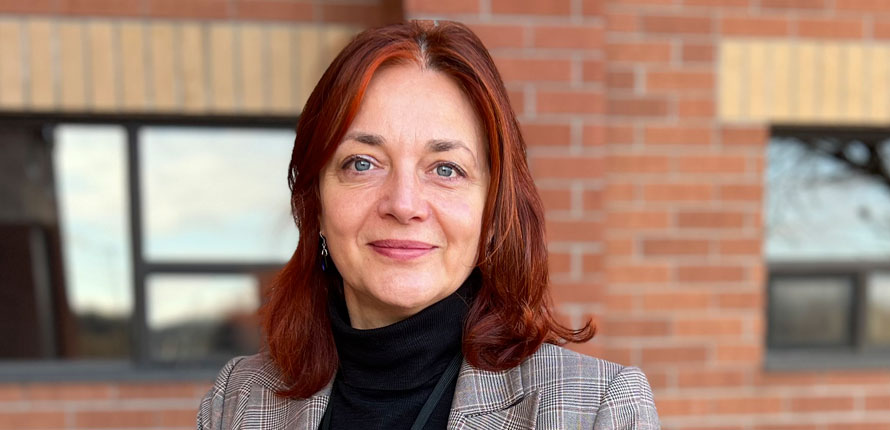
Nela Petkovic, Chief Information Officer (CIO)
I would like to express my gratitude to the ICT team for their unwavering efforts in delivering exceptional service to our students, faculty, and staff. While this report highlights many of the new projects and initiatives that we have implemented, there are countless examples of work from our team that supports the day-to-day operational needs of our institution. Without their commitment, resourcefulness, and responsiveness, we would not be where we are today.
Together, through our operations and projects, we are changing the way that our community studies, teaches, and works at Laurier. I look forward to seeing how we continue this momentum to further elevate our Laurier’s digital capabilities and services in 2024.

“The global pandemic taught us that having equitable access to modern technological tools is essential for student success in post-secondary education. In a rapidly evolving society, this sentiment remains true, and there needs to be commitment from all stakeholders to ensure that our students have what they need to be successful.”
Taylor Coleman, President and CEO, Wilfrid Laurier University Graduate Students’ Association